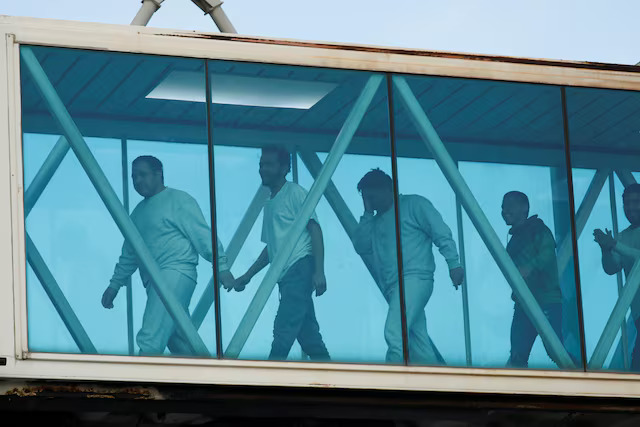The United Nations has revealed that more than 100 Venezuelan migrants deported from the United States are being held at a large high-security prison in El Salvador. The U.N. says these detainees may be facing serious human rights violations at the facility known as the Centre for Terrorism Confinement.
According to the U.N. Office of the High Commissioner for Human Rights (OHCHR), the fate of another 245 Venezuelans and about 30 Salvadorans deported to El Salvador remains unknown. These people were deported as part of a strict immigration plan under U.S. President Donald Trump’s administration.
The U.S. and El Salvador governments have not yet commented on the UN’s findings. President Trump has used the 1798 Alien Enemies Act to remove suspected gang members quickly. Many of those deported are believed to be linked to Venezuela’s Tren de Aragua gang, which the U.S. labels a terrorist group.
Between January 20 and April 29, over 142,000 people were deported from the U.S., according to official numbers shared by the OHCHR. The UN says many Venezuelans sent to El Salvador have ended up in the country’s huge mega-prison, far away from urban areas.
El Salvador’s Centre for Terrorism Confinement can hold up to 40,000 people and is known for being extremely strict. President Nayib Bukele had earlier agreed to jail migrants deported from the U.S. who are accused of crimes. But human rights groups fear that innocent people may also be held in poor and dangerous conditions.
UN human rights chief Volker Türk expressed deep concern. He said many deportees were not told they would be sent to El Salvador and are being treated harshly. Many also had no chance to legally object to their transfer or detention before it happened.
“This situation raises serious concerns about rights protected under U.S. and international law,” Türk said. The UN stressed that all deportees should be able to challenge their detention and must be treated fairly.
The OHCHR has asked El Salvador’s government to allow it access to the mega-prison to assess the conditions of those being held. So far, no response has been given. The situation continues to worry global human rights organizations as they push for transparency and justice.

